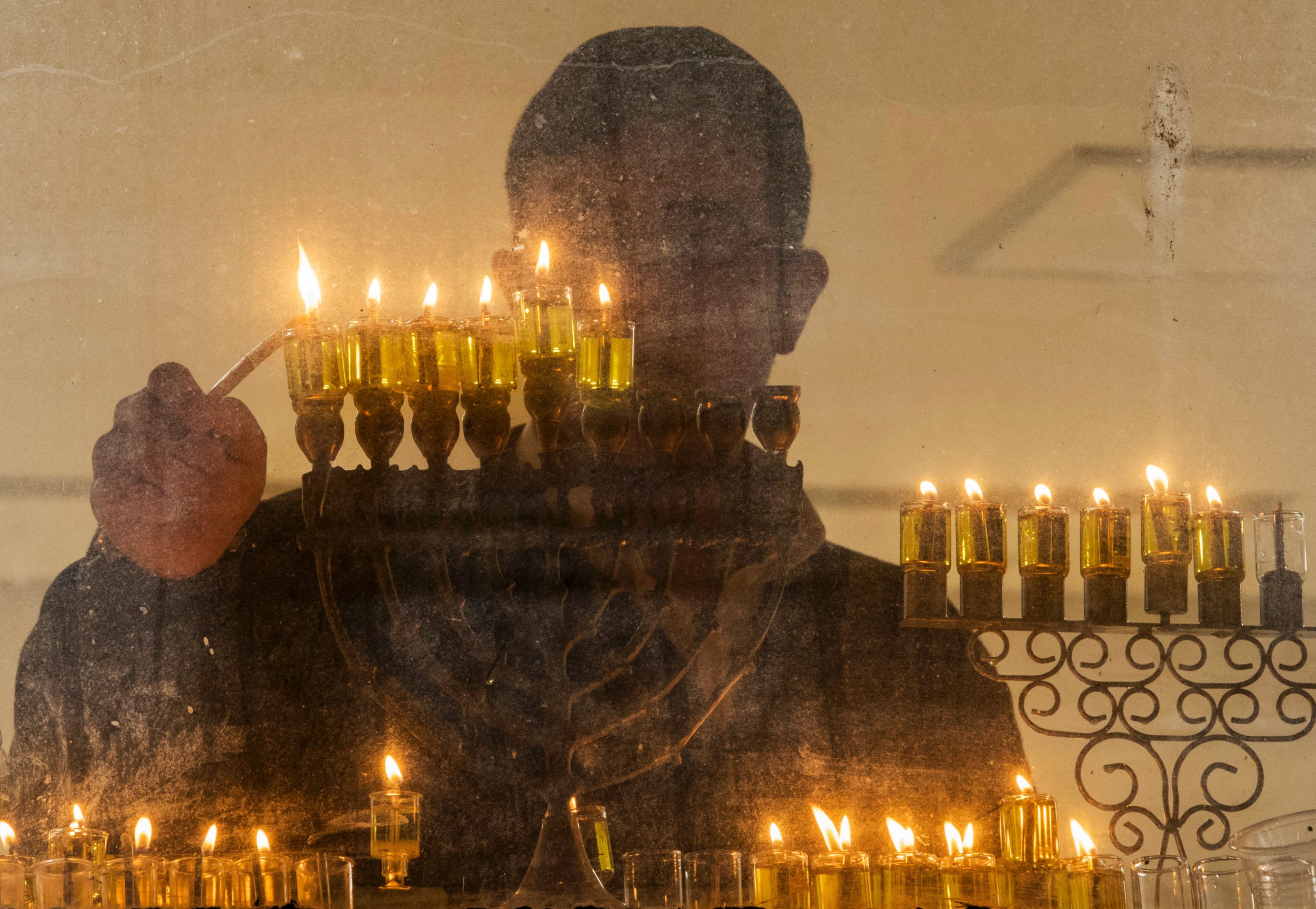
Last year Hanukkah started on December 24—so if its start on Tuesday evening has snuck up on you, you're not alone. The holiday is actually perfectly predictable, but only if you're familiar with lunisolar calendars, rather than the Gregorian calendar that is currently the most commonly used system.
The Hebrew calendar, which governs the dates of Hanukkah and every other Jewish holiday, is meant to keep in sync with the seasons that are created by Earth's orbit around the sun—but it also factors in the moon, with the beginning date of each new month in ancient times based on actual observations of the crescent moon. (The observations themselves have been done away with, but the principle remains in play.)
Inconveniently, the moon's phases don't line up precisely with Earth's path around the sun: One lunar cycle takes 29.5 days, meaning that about 12.3 of them fit within a solar year. So the Hebrew calendar draws on the same basic principle as the leap day we add every four Februarys—but instead of adding a day every four years, it adds a full lunar month to seven out of every 19 years. That adjustment keeps the calendar aligned with both celestial bodies, which in turn means that winter months always fall during the winter.
Adding extra time to keep a calendar true to the seasons is a process called intercalation, although most systems stick with only intercalary days (the Chinese calendar also adds an intercalary month as needed).
Read more: Daylight Saving Time: When Do the Clocks Change and Why
So the Hebrew calendar begins in the fall with the month of Tishrei. Hanukkah begins in the third month, Kislev, on the 25th day. In a year with an intercalary month, that extra time falls halfway through the year, between the sixth and seventh months. After a short year, Hanukkah falls backward compared to the Gregorian calendar (as it is doing this year); then, after an intercalation, it jumps ahead into the end of December.
That's what will happen next: Next year, Hanukkah's first night will fall even earlier, beginning on December 2. Then, after an intercalary month, it will jump to beginning on December 22 in 2019.
Other calendrical details handled differently by the Hebrew and Gregorian systems include the year number (the Hebrew calendar is currently in year 5778) and the time at which a calendar day is considered to begin (6 p.m. in the Hebrew system).
Uncommon Knowledge
Newsweek is committed to challenging conventional wisdom and finding connections in the search for common ground.
Newsweek is committed to challenging conventional wisdom and finding connections in the search for common ground.
About the writer
Meghan Bartels is a science journalist based in New York City who covers the science happening on the surface of ... Read more
To read how Newsweek uses AI as a newsroom tool, Click here.








